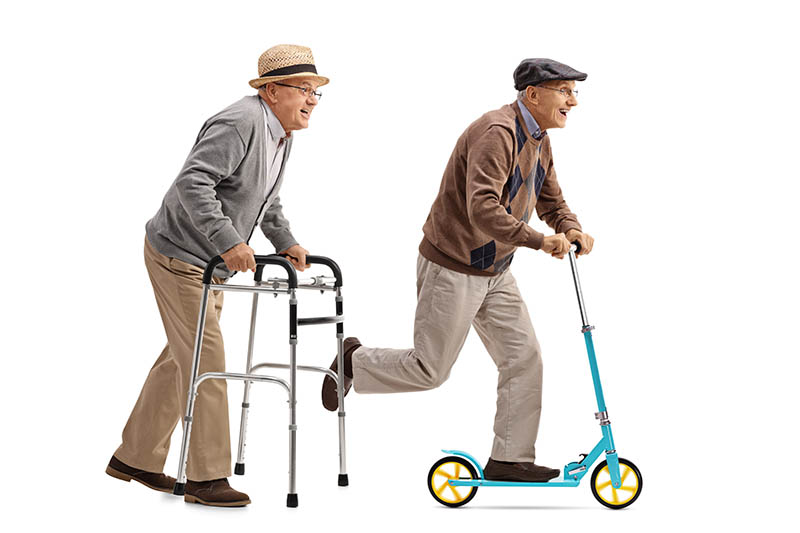When does old age begin? Science does not define any specific age as “old.” The answer is a matter of opinion, but opinions have changed in recent years.
Lifespans Influence Perceptions of Old Age
Perceptions of “old age” have changed as lifespans have increased. A 15-year-old girl in 1901 might have expected to live to the age of 63. Women in their 50s might therefore have been regarded as old, or at least as approaching old age.
By 1951, a 15-year-old girl would expect to live to the age of 73. Life expectancy of 15-year-old girls increased to 77 in 1971 and to 79 in 1989. As lifespans grew longer, more years were added to the age at which people thought of themselves and their peers as “old.”
Health Influences Perceptions of Old Age
Perceptions of “old age” are also related to health. To some extent, healthspans are related to lifespans. Before antibiotics were discovered, people often died relatively quickly after acquiring an infection. Improvements in healthcare have altered the age at which people believe they have grown old.
Longer lifespans are related to improvements in the ability to treat diseases, but the consequence of longer life may be longer treatment of chronic conditions. Medical science can often delay a death caused by heart disease, diabetes, or cancer, but older adults who live with those conditions feel “old” because they are robbed of vitality.
At the same time, there is evidence that the health conditions of Americans who have reached the age of 65 are improving. The percentage of people older than 65 with a debilitating disorder has declined, as has the percentage of people between the ages of 75 and 84 who are living with physical impairments. Healthy aging contributes to the perception that people are not “old” simply because they have reached a traditional retirement age.
Perceptions of Old Age Vary
A recent study builds on information that is already known about perceptions of aging. Research demonstrates that women perceive a later onset of “old age” than men. Perceptions of “old age” are also related to education and socioeconomic status. The more wealth or education an individual has, the less likely that person is to regard himself as “old.”
Subjective feelings about one’s own age tend to drive definitions of “old.” A person who doesn’t feel old after reaching the age of 65 is less likely to define 65 as the beginning of “old age.” Subjective feelings about age can be influenced by several factors, including health, lifestyle, and social connections.
Research has established that people revise their definition of “old age” as they grow older. At the age of 25, people on average define “old age” as starting at 66. The study found that people who are presently in their mid-60s typically perceive the onset of “old age” to occur at 75.
Perceptions of Old Age Are Changing
The study’s findings reflect a historical trend toward a later perceived onset of old age. For example, when people born in 1911 reached the age of 65, they believed (on average) that “old age” would begin at 71. People born in 1956, upon reaching the age of 65, believed (on average) that “old age” would begin at 74.
While people tend to form a concept of “old age” when they are in adolescence or young adulthood, that concept changes as people grow older. As the Baby Boomer generation enters its senior years, perceptions of the age at which one becomes “old” are much different than they were when Baby Boomers were in their teens and twenties.
While chronological age is objective, the perception of being “old” is subjective and variable. The aging population, increasing life expectancy, improvements in healthcare, and a trend to delay retirement all contribute to the postponement of the perceived onset of “old age.”
The study contributes to an understanding that different people define different ages as “old” and that perceptions of “old age” vary and change over time. The study thus lends some support to the clichés that “age is just a number” and “you are only as old as you feel.”
